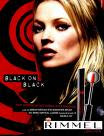
Enterprise Week 2008
The Business School of Enterprise and Innovation put together some events for students to attend, as part of the first year course to help them get a feel of the industry and to see what comes of a degree in business and marketing!!
What Next? Experts from the world of advertising and marketing come together to discuss the challenges for the industry in the next decade
The Business School of Enterprise and Innovation put together some events for students to attend, as part of the first year course to help them get a feel of the industry and to see what comes of a degree in business and marketing!!
What Next? Experts from the world of advertising and marketing come together to discuss the challenges for the industry in the next decade
In this first event we had a panel of businessmen/women from the marketing industry ranging from a media owner to account planners.
Across the table were:
Rob Laurence-BMRB
Jayne Barr-A Creative Consultant
Allan Rich- Mediacom
Steve Cox- The Media Owner
Ivor Peters- PR
Jamie Matthews-Co-Founder of an agency
Andrew Canter
Don Cowley- Account Planner
Across the table were:
Rob Laurence-BMRB
Jayne Barr-A Creative Consultant
Allan Rich- Mediacom
Steve Cox- The Media Owner
Ivor Peters- PR
Jamie Matthews-Co-Founder of an agency
Andrew Canter
Don Cowley- Account Planner
Most of the focus of the questions asked to the panel where around the current economic climate and how businesses can surive through it.
Allan Rich told us how any well run business will come through any recession from using their strengths to focus on main brands to keep the company going. The need for enthusiam was key for his success within the media and marketing segment.
One other key point was that times are always moving forward and with the introduction of things like sky+ people cant fast forward through adverts so that the 30 second advert on tv is starting to become less and less effective. Allan Rich therefore pointed out the use of 30 minute adds aka the one Barack Obama used within the space bowl for his campaign. Not only that the use of new technology they are using digital screens in the underground for advertising.
Allan Rich told us how any well run business will come through any recession from using their strengths to focus on main brands to keep the company going. The need for enthusiam was key for his success within the media and marketing segment.
One other key point was that times are always moving forward and with the introduction of things like sky+ people cant fast forward through adverts so that the 30 second advert on tv is starting to become less and less effective. Allan Rich therefore pointed out the use of 30 minute adds aka the one Barack Obama used within the space bowl for his campaign. Not only that the use of new technology they are using digital screens in the underground for advertising.





 Do these celebrities increase sales?
Do these celebrities increase sales?